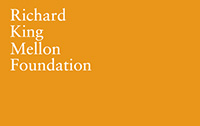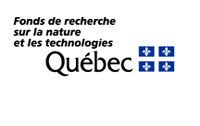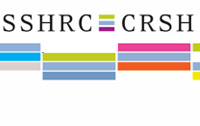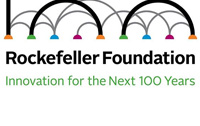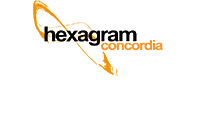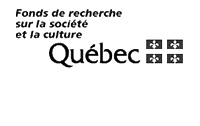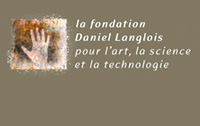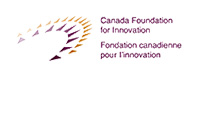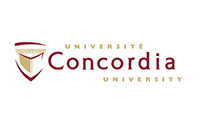Mellon Foundation
The Andrew W. Mellon Foundation currently makes grants in five core program areas:
- Higher Education and Scholarship
- Scholarly Communications and Information Technology
- Art History, Conservation, and Museums
- Performing Arts
- Conservation and the Environment
Within each of its core programs, the Foundation concentrates most of its grantmaking in a few areas. Institutions and programs receiving support are often leaders in fields of Foundation activity, but they may also be promising newcomers, or in a position to demonstrate new ways of overcoming obstacles to achieve program goals.
Our grantmaking philosophy is to build, strengthen and sustain institutions and their core capacities, rather than be a source for narrowly defined projects. As such, we develop thoughtful, long-term collaborations with grant recipients and invest sufficient funds for an extended period to accomplish the purpose at hand and achieve meaningful results.
Gray Center for Arts and Inquiry, the University of Chicago
A mutual love of the arts drew Richard and Mary Gray together when they met almost 60 years ago and has been a driving passion in their lives ever since.
‘The search for knowledge about and experience with the arts are critical to the development of humanistic values,’ says Richard Gray, a lifelong Chicagoan, internationally distinguished art dealer, noted private collector, and architectural landmark preservationist. The Richard Gray Gallery of Chicago and New York specializes in painting, sculpture, and drawings by 20th-century American and European artists. Mary Gray, AM’78, is a published author who has written two books on Chicago’s public sculpture and murals.
‘No one represents the arts better in this city than Richard and Mary Gray,’ says Larry Norman, Deputy Provost for the Arts.
Fonds Québécois de recherche sur la nature et les technologies
Le Fonds Nature et Technologies est un organisme public relevant du ministre du Développement économique, de l’Innovation et de l’Exportation (MDEIE) du Québec, monsieur Raymond Bachand. Les domaines de recherche du FQRNT sont les suivants: Structures abstraites, Nature et transformation de la matière, Études du vivant, Environnement, Ressources naturelles, Matériaux, Technologies de l’information et des communications, Conception, mécanique et structures, Systèmes et procédés, Méthodologies, techniques et instrumentation.
Social Sciences and Humanities Research Council of Canada
The Social Sciences and Humanities Research Council of Canada (SSHRC) is an arm’s-length federal agency that promotes and supports university-based research and training in the social sciences and humanities. Created by an act of Parliament in 1977, SSHRC is governed by a 22-member Council that reports to Parliament through the Minister of Industry. SSHRC-funded research fuels innovative thinking about real life issues, including the economy, education, health care, the environment, immigration, globalization, language, ethics, peace, security, human rights, law, poverty, mass communication, politics, literature, addiction, pop culture, sexuality, religion, Aboriginal rights, the past, our future.
Mellon Foundation
The Andrew W. Mellon Foundation currently makes grants in five core program areas:
- Higher Education and Scholarship
- Scholarly Communications and Information Technology
- Art History, Conservation, and Museums
- Performing Arts
- Conservation and the Environment
Within each of its core programs, the Foundation concentrates most of its grantmaking in a few areas. Institutions and programs receiving support are often leaders in fields of Foundation activity, but they may also be promising newcomers, or in a position to demonstrate new ways of overcoming obstacles to achieve program goals.
Our grantmaking philosophy is to build, strengthen and sustain institutions and their core capacities, rather than be a source for narrowly defined projects. As such, we develop thoughtful, long-term collaborations with grant recipients and invest sufficient funds for an extended period to accomplish the purpose at hand and achieve meaningful results.
Gray Center for Arts and Inquiry, the University of Chicago
A mutual love of the arts drew Richard and Mary Gray together when they met almost 60 years ago and has been a driving passion in their lives ever since.
‘The search for knowledge about and experience with the arts are critical to the development of humanistic values,’ says Richard Gray, a lifelong Chicagoan, internationally distinguished art dealer, noted private collector, and architectural landmark preservationist. The Richard Gray Gallery of Chicago and New York specializes in painting, sculpture, and drawings by 20th-century American and European artists. Mary Gray, AM’78, is a published author who has written two books on Chicago’s public sculpture and murals.
‘No one represents the arts better in this city than Richard and Mary Gray,’ says Larry Norman, Deputy Provost for the Arts.
Fonds Québécois de recherche sur la nature et les technologies
Le Fonds Nature et Technologies est un organisme public relevant du ministre du Développement économique, de l’Innovation et de l’Exportation (MDEIE) du Québec, monsieur Raymond Bachand. Les domaines de recherche du FQRNT sont les suivants: Structures abstraites, Nature et transformation de la matière, Études du vivant, Environnement, Ressources naturelles, Matériaux, Technologies de l’information et des communications, Conception, mécanique et structures, Systèmes et procédés, Méthodologies, techniques et instrumentation.
Social Sciences and Humanities Research Council of Canada
The Social Sciences and Humanities Research Council of Canada (SSHRC) is an arm’s-length federal agency that promotes and supports university-based research and training in the social sciences and humanities. Created by an act of Parliament in 1977, SSHRC is governed by a 22-member Council that reports to Parliament through the Minister of Industry. SSHRC-funded research fuels innovative thinking about real life issues, including the economy, education, health care, the environment, immigration, globalization, language, ethics, peace, security, human rights, law, poverty, mass communication, politics, literature, addiction, pop culture, sexuality, religion, Aboriginal rights, the past, our future.
Rockefeller Foundation
Supporting Resilient and Creative Communities. The Rockefeller Foundation has supported efforts to preserve and renew the cultural heritage of people excluded from the benefits of globalization. Fostering Creativity and Knowledge The Rockefeller Foundation is helping strengthen civil society and the free flow of ideas through supporting individual artists and humanists and their institutions.
Enhancing Creativity and Innovation in a Global Age The Rockefeller Foundation is supporting new art forms which promote cultural diversity, innovation and understanding across cultures.
Mellon Foundation
The Andrew W. Mellon Foundation currently makes grants in five core program areas:
- Higher Education and Scholarship
- Scholarly Communications and Information Technology
- Art History, Conservation, and Museums
- Performing Arts
- Conservation and the Environment
Within each of its core programs, the Foundation concentrates most of its grantmaking in a few areas. Institutions and programs receiving support are often leaders in fields of Foundation activity, but they may also be promising newcomers, or in a position to demonstrate new ways of overcoming obstacles to achieve program goals.
Our grantmaking philosophy is to build, strengthen and sustain institutions and their core capacities, rather than be a source for narrowly defined projects. As such, we develop thoughtful, long-term collaborations with grant recipients and invest sufficient funds for an extended period to accomplish the purpose at hand and achieve meaningful results.
Gray Center for Arts and Inquiry, the University of Chicago
A mutual love of the arts drew Richard and Mary Gray together when they met almost 60 years ago and has been a driving passion in their lives ever since.
‘The search for knowledge about and experience with the arts are critical to the development of humanistic values,’ says Richard Gray, a lifelong Chicagoan, internationally distinguished art dealer, noted private collector, and architectural landmark preservationist. The Richard Gray Gallery of Chicago and New York specializes in painting, sculpture, and drawings by 20th-century American and European artists. Mary Gray, AM’78, is a published author who has written two books on Chicago’s public sculpture and murals.
‘No one represents the arts better in this city than Richard and Mary Gray,’ says Larry Norman, Deputy Provost for the Arts.
Fonds Québécois de recherche sur la nature et les technologies
Le Fonds Nature et Technologies est un organisme public relevant du ministre du Développement économique, de l’Innovation et de l’Exportation (MDEIE) du Québec, monsieur Raymond Bachand. Les domaines de recherche du FQRNT sont les suivants: Structures abstraites, Nature et transformation de la matière, Études du vivant, Environnement, Ressources naturelles, Matériaux, Technologies de l’information et des communications, Conception, mécanique et structures, Systèmes et procédés, Méthodologies, techniques et instrumentation.
Social Sciences and Humanities Research Council of Canada
The Social Sciences and Humanities Research Council of Canada (SSHRC) is an arm’s-length federal agency that promotes and supports university-based research and training in the social sciences and humanities. Created by an act of Parliament in 1977, SSHRC is governed by a 22-member Council that reports to Parliament through the Minister of Industry. SSHRC-funded research fuels innovative thinking about real life issues, including the economy, education, health care, the environment, immigration, globalization, language, ethics, peace, security, human rights, law, poverty, mass communication, politics, literature, addiction, pop culture, sexuality, religion, Aboriginal rights, the past, our future.
Rockefeller Foundation
Supporting Resilient and Creative Communities. The Rockefeller Foundation has supported efforts to preserve and renew the cultural heritage of people excluded from the benefits of globalization. Fostering Creativity and Knowledge The Rockefeller Foundation is helping strengthen civil society and the free flow of ideas through supporting individual artists and humanists and their institutions.
Enhancing Creativity and Innovation in a Global Age The Rockefeller Foundation is supporting new art forms which promote cultural diversity, innovation and understanding across cultures.
Hexagram
Hexagram was constituted on August 27th, 2001. As its geometric name suggests, it symbolizes the coming together of progressive trends. Hexagram was born out of the shared visions of Montreal’s two leading research institutions in media arts and technologies: Concordia University and UQAM. The goal was to combine their expertise in media arts and thus turn Montreal into an internationally recognized hub of creation and development.
At Hexagram, academics specialized in media arts and technologies can work together, forming the necessary critical mass to support innovation in this sector. A researcher based at Université de Montréal who developed a rapid-prototyping lab within his institution has recently joined the team of research members from UQAM and Concordia. More than 75 artists/researchers and 350 graduate students are now working together to make Montreal a showcase of academic excellence in media arts and technologies. From the beginning, the decision was made to set up a non-profit organization, located outside the two founding universities, with an independent Board of Directors.
“Hexagram is a catalyst and promoter of world-calibre research/creation within universities, building bridges with the media arts sector.’’
This is an exciting challenge for Hexagram. In this role it will act as a facilitator and catalyst for media arts through mobilization, transfer and commercialization activities.
Fonds québécois de la recherche sur la société et la culture
Le Fonds québécois de la recherche sur la société et la culture se consacre au développement du système de recherche et d’innovation québécois en sciences sociales et humaines, en arts et en lettres. Pour ce faire, le Fonds soutient financièrement la recherche et la formation des chercheurs dans ces secteurs en plus de favoriser la diffusion et le transfert des connaissances. Il établit aussi les partenariats nécessaires à l’avancement des connaissances scientifiques portant sur des problématiques sociétales
Les divers programmes s’adressent à quelque 4 200 professeurs-chercheurs et professeurs-chercheurs-créateurs, 22 000 étudiants de maîtrise, de doctorat et de niveau postdoctoral qui œuvrent dans les grands domaines de recherche couverts par le Fonds. De plus, bon an mal an, près de 1 300 étudiants des 2e et 3e cycles et chercheurs postdoctorants reçoivent une aide financière par l’entremise des bourses d’excellence et de perfectionnement. Le Fonds se met également au service des milieux de pratique, d’intervention et de décision qui manifestent des besoins en recherche, en favorisant le maillage avec la communauté des chercheurs. Le Fonds s’acquitte de sa mission grâce à un partenariat actif avec, d’une part, les universités et les administrateurs de la recherche et, d’autre part, les professeurs-chercheurs qui participent aux comités d’évaluation des demandes d’aide financière soumises au Fonds.
Daniel Langlois Foundation for Art, Science, and Technology
The Daniel Langlois Foundation’s purpose is to further artistic and scientific knowledge by fostering the meeting of art and science in the field of technologies. The Foundation seeks to nurture a critical awareness of technology’s implications for human beings and their natural and cultural environments, and to promote the exploration of aesthetics suited to evolving human environments. The Centre for Research and Documentation (CR+D) seeks to document history, artworks and practices associated with electronic and digital media arts and to make this information available to researchers in an innovative manner through data communications.
The Foundation’s mission is to:
Promote contemporary artistic practices that use digital technologies to express aesthetic and critical forms of discourse;
Encourage interdisciplinary research and, in general, sustain the development of projects calling for co-operation between people from a variety of fields, such as artists, scientists, technologists and engineers.
Make available the results of research supported by its programs.
Centre interuniversitaire des arts médiatiques, HexagramCIAM
The Centre interuniversitaire des arts médiatiques (CIAM) is an association of 61 researchers at Concordia University, UQAM and the University of Montreal. These researchers study the applications, content and development of technologies that have an impact on the new media arts.
Mellon Foundation
The Andrew W. Mellon Foundation currently makes grants in five core program areas:
- Higher Education and Scholarship
- Scholarly Communications and Information Technology
- Art History, Conservation, and Museums
- Performing Arts
- Conservation and the Environment
Within each of its core programs, the Foundation concentrates most of its grantmaking in a few areas. Institutions and programs receiving support are often leaders in fields of Foundation activity, but they may also be promising newcomers, or in a position to demonstrate new ways of overcoming obstacles to achieve program goals.
Our grantmaking philosophy is to build, strengthen and sustain institutions and their core capacities, rather than be a source for narrowly defined projects. As such, we develop thoughtful, long-term collaborations with grant recipients and invest sufficient funds for an extended period to accomplish the purpose at hand and achieve meaningful results.
Gray Center for Arts and Inquiry, the University of Chicago
A mutual love of the arts drew Richard and Mary Gray together when they met almost 60 years ago and has been a driving passion in their lives ever since.
‘The search for knowledge about and experience with the arts are critical to the development of humanistic values,’ says Richard Gray, a lifelong Chicagoan, internationally distinguished art dealer, noted private collector, and architectural landmark preservationist. The Richard Gray Gallery of Chicago and New York specializes in painting, sculpture, and drawings by 20th-century American and European artists. Mary Gray, AM’78, is a published author who has written two books on Chicago’s public sculpture and murals.
‘No one represents the arts better in this city than Richard and Mary Gray,’ says Larry Norman, Deputy Provost for the Arts.
Fonds Québécois de recherche sur la nature et les technologies
Le Fonds Nature et Technologies est un organisme public relevant du ministre du Développement économique, de l’Innovation et de l’Exportation (MDEIE) du Québec, monsieur Raymond Bachand. Les domaines de recherche du FQRNT sont les suivants: Structures abstraites, Nature et transformation de la matière, Études du vivant, Environnement, Ressources naturelles, Matériaux, Technologies de l’information et des communications, Conception, mécanique et structures, Systèmes et procédés, Méthodologies, techniques et instrumentation.
Social Sciences and Humanities Research Council of Canada
The Social Sciences and Humanities Research Council of Canada (SSHRC) is an arm’s-length federal agency that promotes and supports university-based research and training in the social sciences and humanities. Created by an act of Parliament in 1977, SSHRC is governed by a 22-member Council that reports to Parliament through the Minister of Industry. SSHRC-funded research fuels innovative thinking about real life issues, including the economy, education, health care, the environment, immigration, globalization, language, ethics, peace, security, human rights, law, poverty, mass communication, politics, literature, addiction, pop culture, sexuality, religion, Aboriginal rights, the past, our future.
Rockefeller Foundation
Supporting Resilient and Creative Communities. The Rockefeller Foundation has supported efforts to preserve and renew the cultural heritage of people excluded from the benefits of globalization. Fostering Creativity and Knowledge The Rockefeller Foundation is helping strengthen civil society and the free flow of ideas through supporting individual artists and humanists and their institutions.
Enhancing Creativity and Innovation in a Global Age The Rockefeller Foundation is supporting new art forms which promote cultural diversity, innovation and understanding across cultures.
Hexagram
Hexagram was constituted on August 27th, 2001. As its geometric name suggests, it symbolizes the coming together of progressive trends. Hexagram was born out of the shared visions of Montreal’s two leading research institutions in media arts and technologies: Concordia University and UQAM. The goal was to combine their expertise in media arts and thus turn Montreal into an internationally recognized hub of creation and development.
At Hexagram, academics specialized in media arts and technologies can work together, forming the necessary critical mass to support innovation in this sector. A researcher based at Université de Montréal who developed a rapid-prototyping lab within his institution has recently joined the team of research members from UQAM and Concordia. More than 75 artists/researchers and 350 graduate students are now working together to make Montreal a showcase of academic excellence in media arts and technologies. From the beginning, the decision was made to set up a non-profit organization, located outside the two founding universities, with an independent Board of Directors.
“Hexagram is a catalyst and promoter of world-calibre research/creation within universities, building bridges with the media arts sector.’’
This is an exciting challenge for Hexagram. In this role it will act as a facilitator and catalyst for media arts through mobilization, transfer and commercialization activities.
Fonds québécois de la recherche sur la société et la culture
Le Fonds québécois de la recherche sur la société et la culture se consacre au développement du système de recherche et d’innovation québécois en sciences sociales et humaines, en arts et en lettres. Pour ce faire, le Fonds soutient financièrement la recherche et la formation des chercheurs dans ces secteurs en plus de favoriser la diffusion et le transfert des connaissances. Il établit aussi les partenariats nécessaires à l’avancement des connaissances scientifiques portant sur des problématiques sociétales
Les divers programmes s’adressent à quelque 4 200 professeurs-chercheurs et professeurs-chercheurs-créateurs, 22 000 étudiants de maîtrise, de doctorat et de niveau postdoctoral qui œuvrent dans les grands domaines de recherche couverts par le Fonds. De plus, bon an mal an, près de 1 300 étudiants des 2e et 3e cycles et chercheurs postdoctorants reçoivent une aide financière par l’entremise des bourses d’excellence et de perfectionnement. Le Fonds se met également au service des milieux de pratique, d’intervention et de décision qui manifestent des besoins en recherche, en favorisant le maillage avec la communauté des chercheurs. Le Fonds s’acquitte de sa mission grâce à un partenariat actif avec, d’une part, les universités et les administrateurs de la recherche et, d’autre part, les professeurs-chercheurs qui participent aux comités d’évaluation des demandes d’aide financière soumises au Fonds.
Daniel Langlois Foundation for Art, Science, and Technology
The Daniel Langlois Foundation’s purpose is to further artistic and scientific knowledge by fostering the meeting of art and science in the field of technologies. The Foundation seeks to nurture a critical awareness of technology’s implications for human beings and their natural and cultural environments, and to promote the exploration of aesthetics suited to evolving human environments. The Centre for Research and Documentation (CR+D) seeks to document history, artworks and practices associated with electronic and digital media arts and to make this information available to researchers in an innovative manner through data communications.
The Foundation’s mission is to:
Promote contemporary artistic practices that use digital technologies to express aesthetic and critical forms of discourse;
Encourage interdisciplinary research and, in general, sustain the development of projects calling for co-operation between people from a variety of fields, such as artists, scientists, technologists and engineers.
Make available the results of research supported by its programs.
Centre interuniversitaire des arts médiatiques, HexagramCIAM
The Centre interuniversitaire des arts médiatiques (CIAM) is an association of 61 researchers at Concordia University, UQAM and the University of Montreal. These researchers study the applications, content and development of technologies that have an impact on the new media arts.
Canada Foundation for Innovation, CFI
The Canada Foundation for Innovation (CFI) is an independent corporation created by the Government of Canada to fund research infrastructure. The CFI’s mandate is to strengthen the capacity of Canadian universities, colleges, research hospitals, and non-profit research institutions to carry out world-class research and technology development that benefits Canadians.
Concordia University
– Vice Provost Research and Graduate Studies
– Vice Provost Teaching and Learning
– Faculty of Fine Arts
– Faculty of Engineering & Computer Science
– Office of Research
Concordia is a large, urban university, in Montreal, Quebec, Canada. The university has two campuses, set approximately 7 km apart: Sir George Williams Campus is in the downtown core of Montreal, and Loyola Campus is in the residential west-end of Montreal. They are connected by a free shuttle-bus service for students, faculty and staff.
Although founded in 1974, the university traces its academic roots back to the early 20th century, with the development of the Jesuit-run Loyola College and the YMCA-based Sir George Williams University. (Read more about our history.)
Concordia is proud of its tradition of accessibility and concern for the individual. We value inter-disciplinary approaches to learning, and we are dedicated to offering the best possible scholarship, research and training for the real world.
Concordia’s more than 180 undergraduate programs are divided into four Faculties: Arts and Science, Engineering and Computer Science, Fine Arts, and the John Molson School of Business. Students are enrolled in one of these Faculties, but they may take courses from any of the others as part of their studies. Many programs also offer a “co-operative” component, whereby students get work experience while they study.
In addition, the School of Graduate Studies offers more than 70 programs leading to Master’s and doctoral degrees, as well as a variety of graduate diplomas and certificates for professionals seeking to upgrade their knowledge and skills.
Students enter the university in September, or in some cases, in January or May. An undergraduate degree normally takes three or four years to complete, a Master’s takes from a year-and-a-half to three, and a PhD is at least four years long. Certificates and diplomas usually take no longer than a year-and-a-half to complete.


